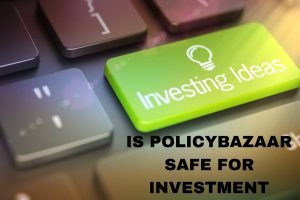Diversity and inclusion are critical to building a resilient, innovative clean energy workforce that reflects the communities it serves. Freedom Forever Solar is an industry leader committed to fostering a culture where people from all backgrounds feel valued and empowered to succeed in solar careers. By recruiting, training, and promoting diverse talent, the company strengthens its ability to solve complex challenges and connect meaningfully with customers. This intentional approach ensures the benefits of clean energy are accessible to all while creating opportunities for underrepresented groups.
Driving inclusion in solar careers means more than meeting quotas; it requires creating supportive pathways and removing barriers to entry. Apprenticeship programs, mentorship initiatives, and targeted outreach help equip people of all ages and backgrounds with the skills they need to thrive in the industry. Diverse teams bring broader perspectives and fresh ideas that fuel continuous improvement and innovation. By prioritizing inclusion, the solar sector will be able to expand its talent pool and also lead by example in building a fairer, more sustainable future.
Why Representation Matters in Clean Energy
Representation is not just about optics but about opportunity. Historically, many of the trades and technical roles tied to energy infrastructure have been dominated by a narrow demographic. This lack of diversity limits innovation and can create barriers for those who might otherwise succeed in the field.
A diverse workforce brings a broader range of perspectives, strengthens problem-solving, and fosters more inclusive decision-making. In customer-facing industries like solar, it also helps build trust with homeowners who see themselves reflected in the team serving their communities. For companies, investing in diversity is not just the right thing to do but also a long-term business advantage.
Recruitment That Reaches Further
Creating an inclusive workforce begins at the recruitment stage. Solar companies that prioritize diversity cast a wider network, partnering with community colleges, veteran support groups, workforce development nonprofits, and organizations serving underrepresented populations.
Outreach materials are designed to show real people in real roles, breaking down the misconception that solar is only for those with prior technical training. Entry-level opportunities are promoted through local job fairs, social platforms, and apprenticeship programs. This kind of targeted outreach helps expand the talent pool and introduces solar careers to people who might not have considered them otherwise.
Training That Levels the Field
Access alone is not enough. Once people are hired, they need training so that they can meet where they are. Many successful solar companies develop internal learning programs that blend classroom instruction, on-the-job training, and mentorship.
These programs ensure that workers without prior experience have the support they need to grow. They also help workers build confidence and develop leadership potential. Mentorship plays a key role in inclusion. When new employees are paired with experienced colleagues who share similar backgrounds or career paths, they’re more likely to stay, succeed, and envision themselves advancing within the company.
Additionally, Freedom Forever reviews and actively invests in outreach, training, and culture-building to help lead the charge toward a workforce where anyone, regardless of race, gender, background, or education, can find a place and build a career in clean energy.
Creating a Culture That Welcomes Everyone
Diversity efforts succeed when a culture of inclusion matches them. That means creating an environment where people feel respected, supported, and empowered to contribute. Inclusive solar companies focus on equitable policies, such as pay transparency, flexible scheduling, and clear advancement pathways. They also foster communication through regular check-ins, team feedback loops, and leadership that listens.
Employee Resource Groups (ERGs) can also play a role, providing a platform for peer connection, advocacy, and professional development. These networks help employees feel seen and give them a way to shape the company culture from within.
Celebrating the Value of Differences
Workplace diversity includes many dimensions, ethnicity, gender, age, veteran status, disability, language, education, and life experience. Companies that embrace these differences often find that they’re better equipped to solve complex problems, connect with customers, and innovate faster.
In solar, this diversity strengthens everything from sales to service. A bilingual support representative can help more homeowners understand their solar system. A veteran installer brings discipline and field leadership. A second-career apprentice offers maturity and life experience. By valuing different perspectives, companies build stronger teams and better outcomes.
Leadership From Within
Diversity is not just a recruitment issue but a leadership imperative. Companies that want to retain talent must show clear paths to advancement and promotion from within. That includes offering training for team leads, recognizing achievements across departments, and creating management pipelines that reflect the workforce.
When leadership reflects the diversity of field teams and office staff, it sends a strong message: this is a place where people can grow. It also enhances decision-making at the top. Leaders who understand the challenges their employees face can make better, more equitable choices for the organization.
The Role of Partnerships and Policy
Inclusion is also about collaboration. Solar companies can strengthen their diversity efforts by working with local governments, workforce agencies, and nonprofit organizations to create programs that lower barriers to entry. It includes scholarships, paid apprenticeships, transportation stipends, and second-chance hiring programs. Public policy also plays a role, with many states offering incentives for solar companies that meet workforce equity targets.
By aligning internal goals with external resources, companies can scale their impact and make diversity an industry-wide priority. The future of clean energy depends on the person. As solar continues to expand, the companies that lead can be those that invest in people as much as they invest in panels and software. That means broadening access, removing barriers, and building workplaces where everyone can thrive. It also means listening to employees, celebrating differences, and continuously learning how to do better. Inclusion is not a milestone but an ongoing effort that strengthens companies, empowers workers, and builds a cleaner, fairer energy economy for everyone.













